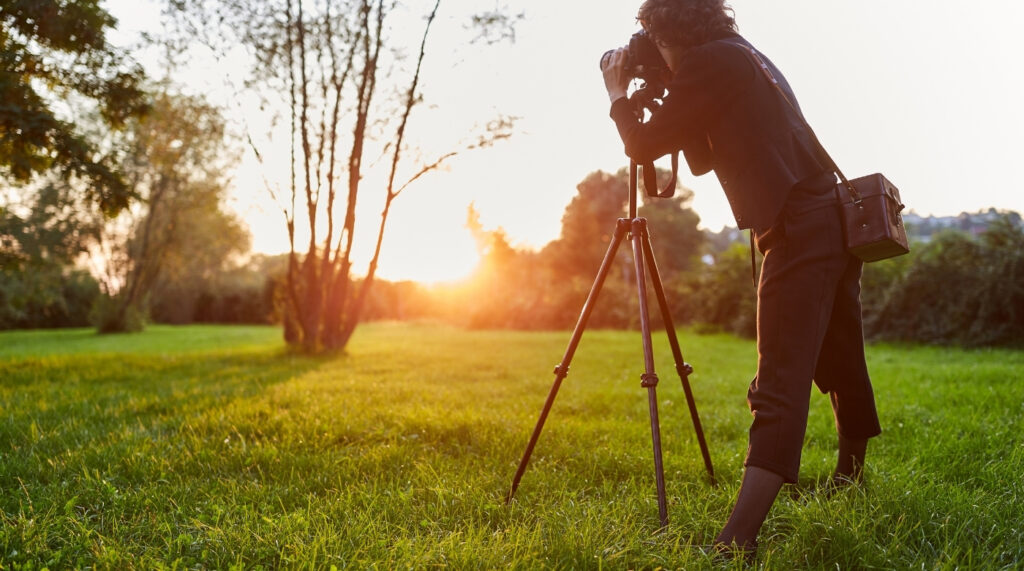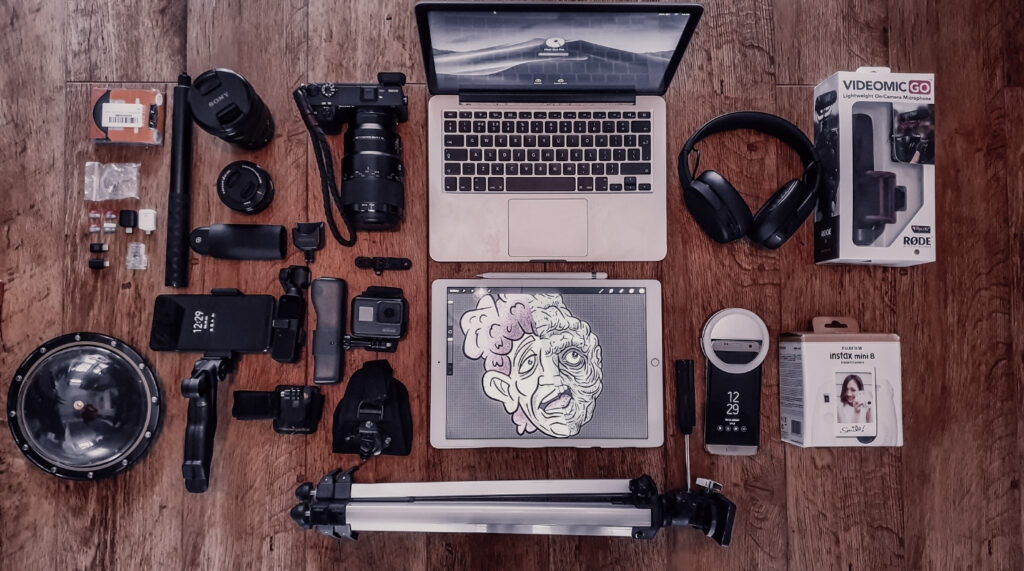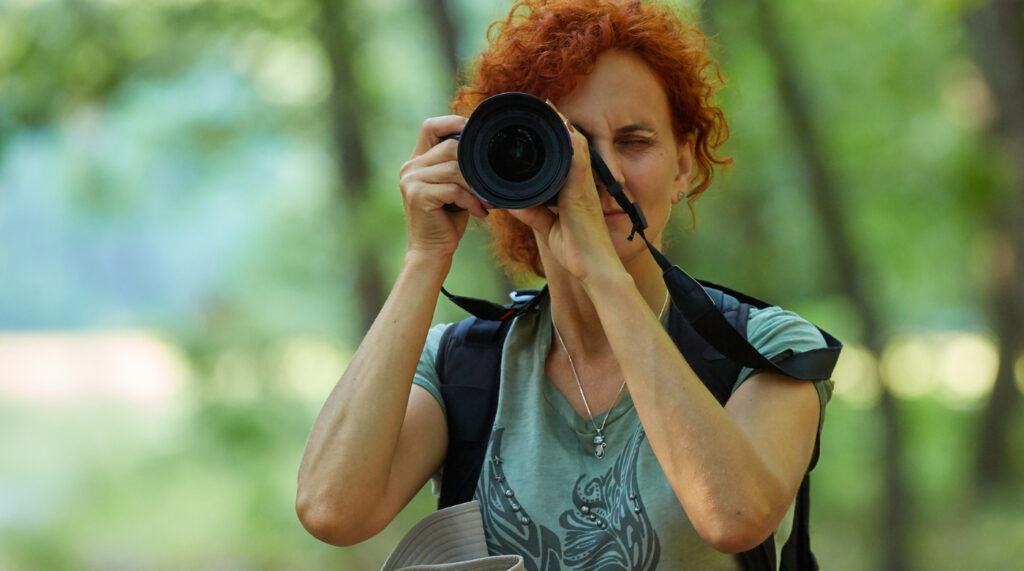In a world where visuals dominate everything from advertising and journalism to social media and art, professional photography skills have become more vital and versatile than ever. Photography is no longer limited to those who own expensive cameras and work in studios. With advancements in digital photography, the rise of visual storytelling, and powerful photo editing tools, photography has evolved into a dynamic and lucrative career path for those who combine creativity with technical expertise.
Whether you aspire to work in studio photography, become a freelance visual storyteller, or build a photography-based business, this comprehensive guide will explore what it takes to succeed in today’s competitive photography landscape. From learning the tools of the trade to understanding the business, qualifications, salary expectations, and creative workflows, this guide will serve as a roadmap to turning passion into a profession.
The Modern Landscape of Photography
Photography today is more than just capturing a moment—it’s about creating impact. From marketing campaigns and e-commerce visuals to weddings and magazine editorials, professionally shot images are essential for communication, branding, and emotion. The field now includes a broad spectrum of specialisations including product photography, portraiture, fashion shoots, commercial and editorial work, real estate, wildlife, and more.
With the global digital economy booming, businesses and content creators constantly need high-quality visuals. Skilled photographers who understand digital photography techniques and know how to craft compelling images—whether in natural settings or a controlled studio photography environment—are in high demand. Mastery of photo editing tools is also no longer optional; it’s a critical part of the professional process.
The modern photographer often wears many hats: artist, technician, entrepreneur, editor, marketer—and sometimes all at once. The good news? There’s room for creative freedom, flexible schedules, global reach, and immense personal satisfaction in the profession.

Essential Professional Photography Skills
To thrive as a professional, one must cultivate a balance between artistic vision and technical mastery. While natural creativity provides the foundation, true success in photography comes from developing a set of essential core competencies.
Technical camera knowledge is one of the first key pillars. Understanding camera settings such as ISO, shutter speed, aperture, white balance, and focus modes is critical. This extends to both DSLR and mirrorless systems, and increasingly, to mobile and drone-based platforms as well.
Equally important is mastering lighting techniques—whether it’s natural light, off-camera flash, or advanced studio lighting setups. In studio photography, knowledge of softboxes, reflectors, strobes, and modifiers determines the quality of your images. Studio work demands a deep understanding of how to sculpt light, control shadows, and create consistent visual aesthetics.
Composition and visual storytelling play an artistic role. Framing, leading lines, colour theory, and the use of negative space all contribute to how an image communicates its subject.
After capturing the shot, the photographer’s work often continues in the editing phase. Proficiency in photo editing software like Adobe Lightroom, Photoshop, or Capture One allows professionals to retouch images, adjust colour tones, remove distractions, and finalise files for delivery across platforms. These tools also help maintain a signature style, enhance commercial value, and increase visual consistency across projects.
Client communication, project planning, and digital asset management round out the professional’s skill set, especially for those working freelance or running a business.
Education and Qualifications
While talent and dedication often trump formal education in the creative world, earning certifications or completing photography courses can give you a competitive edge. It shows commitment, builds confidence, and offers structured exposure to industry-standard techniques and equipment.
A formal diploma or degree in photography, visual arts, or media production can open doors in advertising agencies, media houses, and fashion brands. These programs typically cover everything from digital photography fundamentals and studio techniques to business and portfolio development.
Online platforms also offer excellent alternatives for upskilling. Workshops and certification courses focusing on specific areas like photo editing, lighting, or studio setup are widely available and often more affordable and flexible than traditional routes.
Common Photography Qualifications
| Qualification Type | Examples |
|---|---|
| Formal Degree | BA in Photography, BFA in Visual Arts |
| Vocational Certifications | Level 3 Diploma in Photography, NVQ in Creative Media |
| Software Certifications | Adobe Certified Professional in Photoshop or Lightroom |
| Online Courses | Coursera, Domestika, Skillshare, LinkedIn Learning |
| Studio Training | Short courses in lighting, portraiture, and studio setup |
It’s also useful to supplement photography learning with business-related knowledge, especially if you plan to go freelance or launch a brand. Courses in marketing, sales, contracts, and intellectual property rights can be instrumental.
Career Roadmap: From Entry to Expertise
The journey toward becoming a successful photographer can take various routes depending on your chosen niche. Many begin as hobbyists or assistants, learning the craft through personal projects, part-time gigs, or mentoring under established professionals. Interning at studios or working as a second shooter for weddings and events also provides vital hands-on experience.
A well-rounded portfolio is your passport to new opportunities. Whether you’re pitching to clients, applying for agency jobs, or marketing yourself online, a curated collection of work showcasing your professional photography skills across diverse settings is essential.
Some choose to specialise early—becoming experts in studio photography, editorial portraiture, or commercial product imaging—while others remain generalists, building a reputation across multiple styles and industries. As experience grows, so does your ability to charge higher rates, attract premium clients, and take on more ambitious creative roles.
Here’s a general view of how a photography career might evolve:
| Stage | Common Activities and Goals |
|---|---|
| Beginner | Learn camera basics, explore genres, assist professionals |
| Intermediate | Build portfolio, start freelancing, develop editing skills |
| Professional | Specialise, market services, manage client projects |
| Expert | Lead shoots, teach, mentor, run studio or brand |
The transition from freelance artist to entrepreneur is common in photography. Many professionals go on to launch their own studios, build product lines, teach online classes, or work as brand ambassadors.
Equipment and Tools for Professionals
Professional photographers rely heavily on equipment and software to bring their creative visions to life. While gear shouldn’t define your talent, having the right tools can significantly enhance your ability to deliver high-quality work.
Essential camera gear typically includes a DSLR or mirrorless camera body, a selection of lenses (wide-angle, prime, zoom, and macro), external flashes, reflectors, and tripods. For studio photography, this expands to include backdrop systems, continuous lighting, strobe lights, softboxes, and tethering setups.
On the software side, photo editing tools are central to post-production. Adobe Lightroom is ideal for batch editing and colour correction, while Photoshop is preferred for advanced retouching, compositing, and manipulation. Many photographers also use cloud storage, client proofing platforms, and project management tools to streamline their business operations.
Accessories like colour checkers, calibration monitors, hard drives, and SD card readers round out a working studio setup. Drone cameras and gimbals are becoming increasingly popular in real estate and travel photography niches.

Photography Salaries and Income Potential
The earning potential for photographers varies greatly depending on location, experience, specialisation, and business model. Entry-level assistants or freelance shooters may earn modestly in their first years, but skilled professionals who offer in-demand services or cater to premium markets can command impressive fees.
Photographers who build consistent brands, market themselves effectively, and develop diverse income streams often outperform those relying solely on gig work.
Typical UK Salary Ranges in Photography (2025 Estimates)
| Role/Type | Salary/Income Range |
|---|---|
| Photography Assistant | £18,000 – £24,000 annually |
| Freelance Event Photographer | £100 – £500 per project |
| Studio Photographer | £28,000 – £45,000 annually |
| Commercial Photographer | £40,000 – £65,000 annually |
| Senior Art or Creative Director | £60,000 – £90,000+ annually |
| Online Educator / Influencer | Varies – £1,000 to £10,000+ per month |
Photographers can also diversify income by selling stock images, licensing work, offering photo tours, launching online courses, or even creating merchandise featuring their imagery.
Industry Trends and Opportunities
The photography industry continues to evolve with technology. AI-driven photo editing tools are becoming faster and smarter, enabling more efficient workflows. Clients now expect faster delivery, mobile compatibility, and a unique artistic voice that distinguishes you from AI-generated content or automated visuals.
The rise of social media, e-commerce, and remote collaboration has expanded opportunities for visual storytelling. Brand photographers, content creators, and studio photography professionals are in constant demand to support marketing efforts.
At the same time, authenticity and niche expertise are gaining value. Clients increasingly seek photographers who can tell real stories, document diverse subjects, and build emotional connections through imagery.
With mobile phone cameras improving dramatically, the distinction lies not just in the quality of the photo but in the direction, lighting, emotion, and post-processing. In short, professional photography skills remain irreplaceable.
Final Thoughts
Photography is more than a career—it’s a way of seeing the world. Mastering professional photography skills allows you to capture moments, influence culture, tell stories, and build a business doing what you love. Whether your path leads to high-end studio photography, cutting-edge digital photography, artistic commercial campaigns, or photojournalism, the journey is filled with creative growth, connection, and opportunity.
To succeed, combine artistic passion with technical discipline. Keep learning, invest in the right tools, master photo editing, and be intentional about your niche and clients. Whether you’re just starting out or looking to evolve your practice, now is a better time than ever to turn your lens toward a fulfilling and financially rewarding future.

